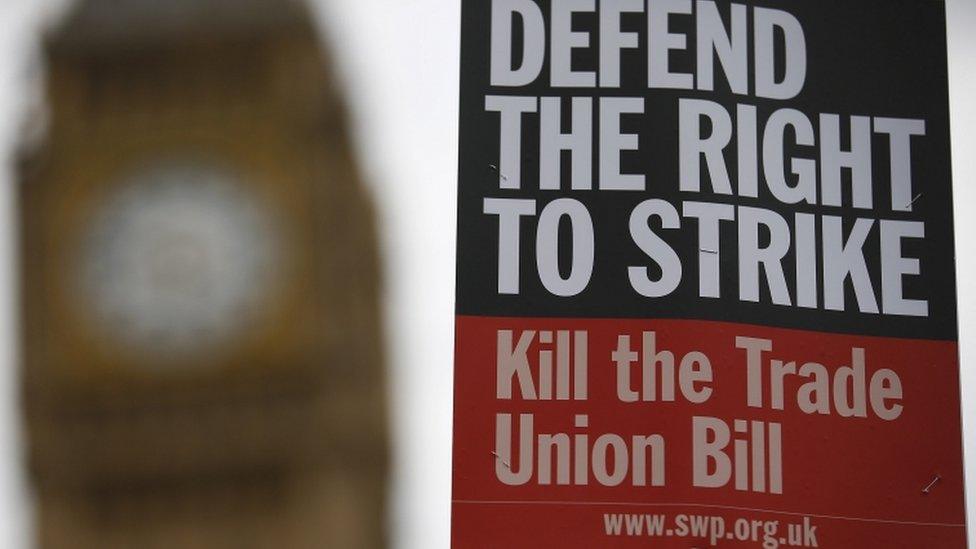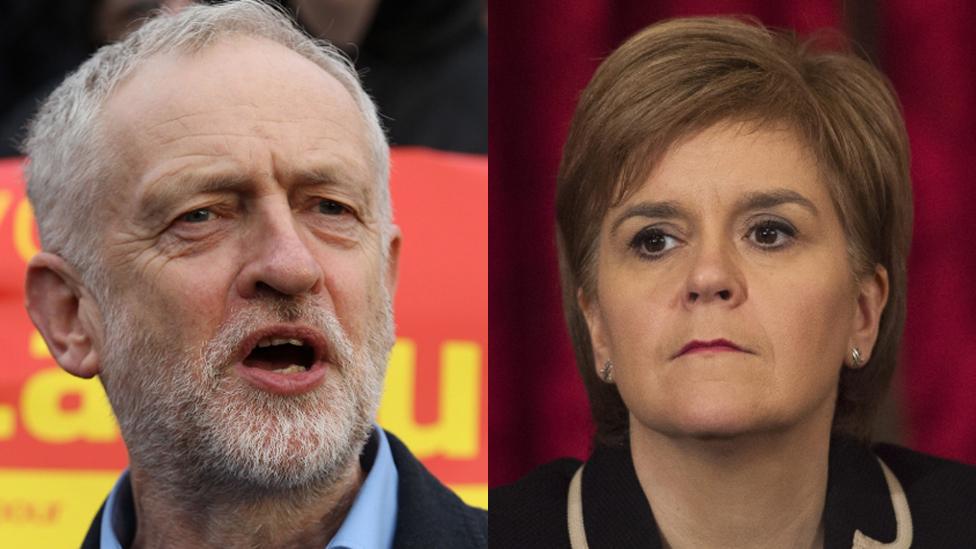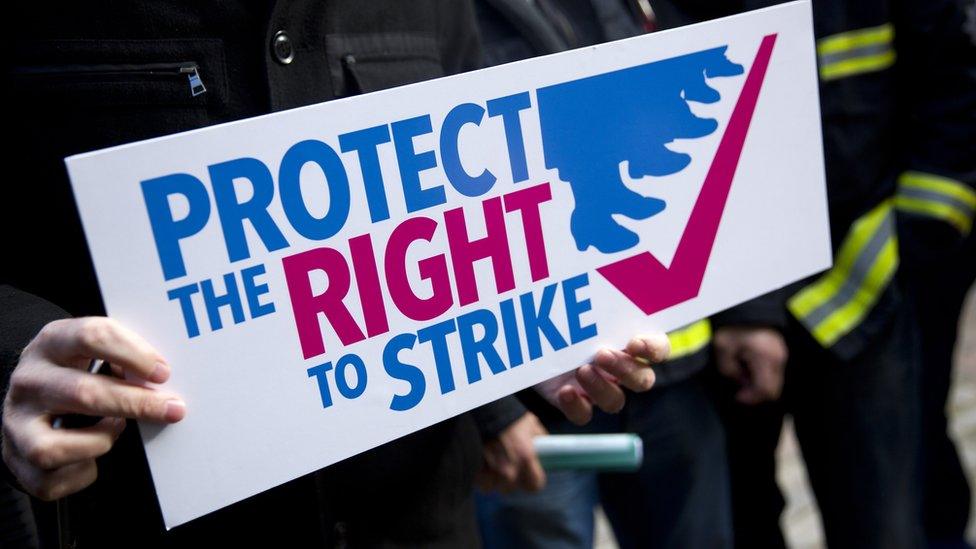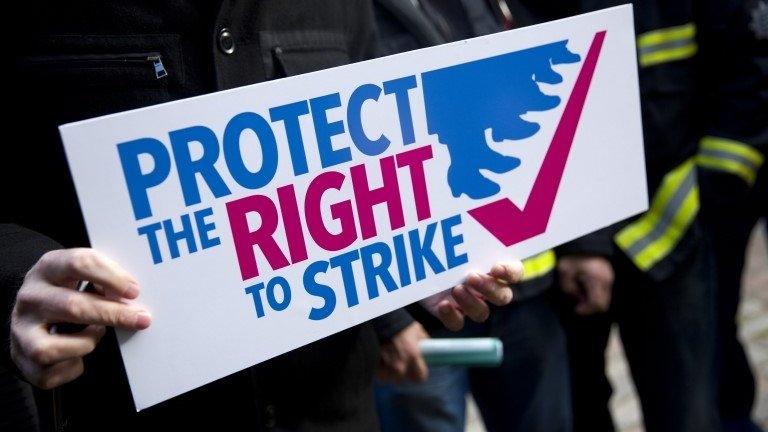Attempt to block Trade Union Bill in Scotland rejected
- Published

The SNP and Labour have taken legal advice on ways to block the Trade Union Bill, which is being discussed at Westminster
A Scottish government attempt to block the Trade Union Bill from applying to Scotland has been rejected by the presiding officer.
Ministers wanted to lodge a legislative consent memorandum, claiming Holyrood should have a say on the bill as it could affect devolved areas.
However, Presiding Officer Tricia Marwick turned down the motion.
The Scottish government said it was considering other options to block the bill.
Nicola Sturgeon is to campaign alongside Labour leader Jeremy Corbyn in opposition to the proposed legislation.
The bill would see tighter regulations on when and how unions can call strikes, and would apply in England, Wales and Scotland.
Fair Work and Skills Secretary Roseanna Cunningham attempted to lodge a legislative consent memorandum, a motion normally used to give Westminster permission to legislate on devolved matters.
She said there was "clear opposition" to the bill in Scotland.
'Not competent'
However, the presiding officer replied saying that "my view is that the parliament's legislative consent is not required, and it is not competent to lodge a legislative consent memorandum".
Ms Cunningham said she was "obviously disappointed" by the decision, while a spokeswoman said the Scottish government would "look at other routes" to make objections to the bill clear to the UK government.
She added: "The government intends to submit a general memorandum setting out our objections to the bill for a parliamentary committee to consider.
"However this decision should leave people in no doubt that the only way to protect workers is through the full devolution of trade union powers."
Scottish Labour has also taken legal advice over the Trade Union Bill in a bid to derail it, and MSP Neil Findlay raised the matter in the chamber, saying "the majority" of MSPs are against it.
The Scottish Conservatives said it was never in doubt that the matter was reserved to Westminster.
Tory MSP Murdo Fraser said: "The SNP now have egg on their faces after trying to play constitutional games in relation to what clearly is a reserved matter for the UK government."
- Published10 December 2015

- Published9 December 2015

- Published10 November 2015
